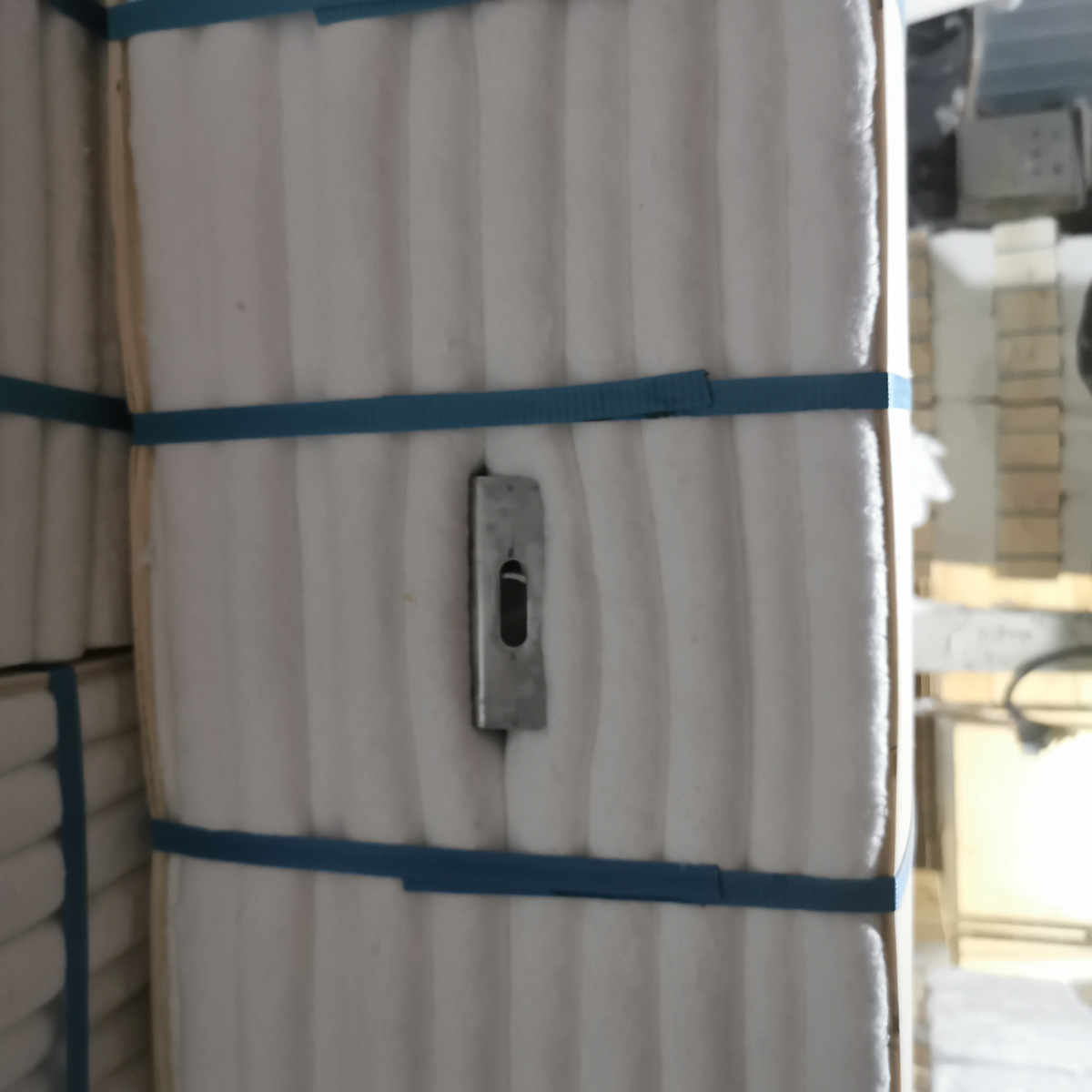Ceramic fiber modules are high-performance insulation solutions that offer exceptional thermal properties, durability, and energy efficiency. Their versatility makes them suitable for a wide range of industrial applications. These applications include furnaces, kilns, boilers, heaters, and more. By utilizing ceramic fiber modules, industries can achieve improved energy efficiency, enhanced process efficiency, increased safety, cost-effectiveness, and environmental sustainability.
Understanding Ceramic Fiber Modules

Ceramic fiber modules are pre-formed, rigid insulation components made from high-quality ceramic fibers. These modules are engineered to provide superior thermal insulation and withstand extreme temperatures. This feature makes them ideal for a wide range of industrial applications. The manufacturing process involves needling ceramic fibers together and bonding them with high-temperature binders. So it ensures in a robust and durable structure.
Key Features of Ceramic Fiber Modules
- Exceptional Thermal Insulation:Ceramic fiber moduels insulation exhibit exceptionally low thermal conductivity, effectively minimizing heat transfer and energy loss. This feature is crucial in high-temperature environments, where efficient insulation is essential for optimizing energy consumption and reducing operating costs.
- High-Temperature Resistance:Ceramic fiber modules can withstand extremely high temperatures, typically ranging from 1,260 degrees Celsius (2,300 degrees Fahrenheit) to 1,430 degrees Celsius (2,600 degrees Fahrenheit). This remarkable heat resistance makes them suitable for applications involving furnaces, kilns, boilers, and other high-temperature processes.
- Low Heat Storage:Ceramic fiber modules have low heat storage capacity, which means they absorb and release minimal heat. This characteristic contributes to energy savings by reducing the amount of energy required to heat up or cool down the insulation system.
- Tensile Strength and Durability:Ceramic fiber modules possess high tensile strength and durability, enabling them to withstand mechanical stress and vibration. Their robust construction ensures long-term performance and reliability in demanding industrial environments.
- Lightweight and Easy to Install:Despite their exceptional thermal properties, ceramic fiber modules are lightweight and easy to handle. This facilitates quick and efficient installation, minimizing downtime and labor costs during maintenance or repair operations.
Applications of Ceramic Fiber Modules in Industry
- Industrial Furnaces and Kilns:Ceramic fiber modules are extensively used as insulation linings in industrial furnaces and kilns, where they play a vital role in maintaining high temperatures, reducing energy consumption, and enhancing process efficiency.
- Boilers and Heaters:In boilers and heaters, ceramic fiber modules provide effective insulation, minimizing heat loss and optimizing energy usage. Their ability to withstand high temperatures ensures reliable performance in these demanding applications.
- Petrochemical and Chemical Processing:Ceramic fiber modules are utilized in petrochemical and chemical processing industries to insulate reactors, vessels, and pipelines, ensuring process temperature control and preventing heat-related accidents.
- Power Generation:Within the power generation industry, ceramic fiber modules contribute to energy efficiency by insulating boilers, turbines, and other high-temperature components, reducing heat loss and improving overall plant performance.
- Aerospace and Automotive:Ceramic fiber modules find application in aerospace and automotive industries for high-temperature insulation in exhaust systems, jet engines, and other components that experience extreme heat.
Benefits of Using Ceramic Fiber Modules
- Energy Efficiency:By minimizing heat loss and optimizing energy usage, ceramic fiber modules contribute to significant energy savings in industrial operations. Their low thermal conductivity and low heat storage capacity reduce energy consumption and operating costs.
- Improved Process Efficiency:Ceramic fiber modules enhance process efficiency by providing consistent and reliable temperature control. Their ability to withstand extreme temperatures ensures optimal process conditions, leading to increased productivity and reduced downtime.
- Enhanced Safety:The use of ceramic fiber modules improves safety in industrial environments by preventing heat-related accidents and injuries. Their high-temperature resistance and excellent insulation properties minimize the risk of burns and fires, creating a safer workplace for employees.
- Durability and Longevity:Ceramic fiber modules are highly durable and long-lasting, providing a cost-effective insulation solution for industrial applications. Their resistance to wear and tear, along with their ability to withstand harsh conditions, ensures a long service life and minimizes maintenance requirements.
Environmental Sustainability: By promoting energy efficiency and reducing greenhouse gas emissions, ceramic fiber modules contribute to environmental sustainability in industrial processes. Their ability to minimize energy consumption and optimize resource utilization aligns with eco-friendly manufacturing practices.
